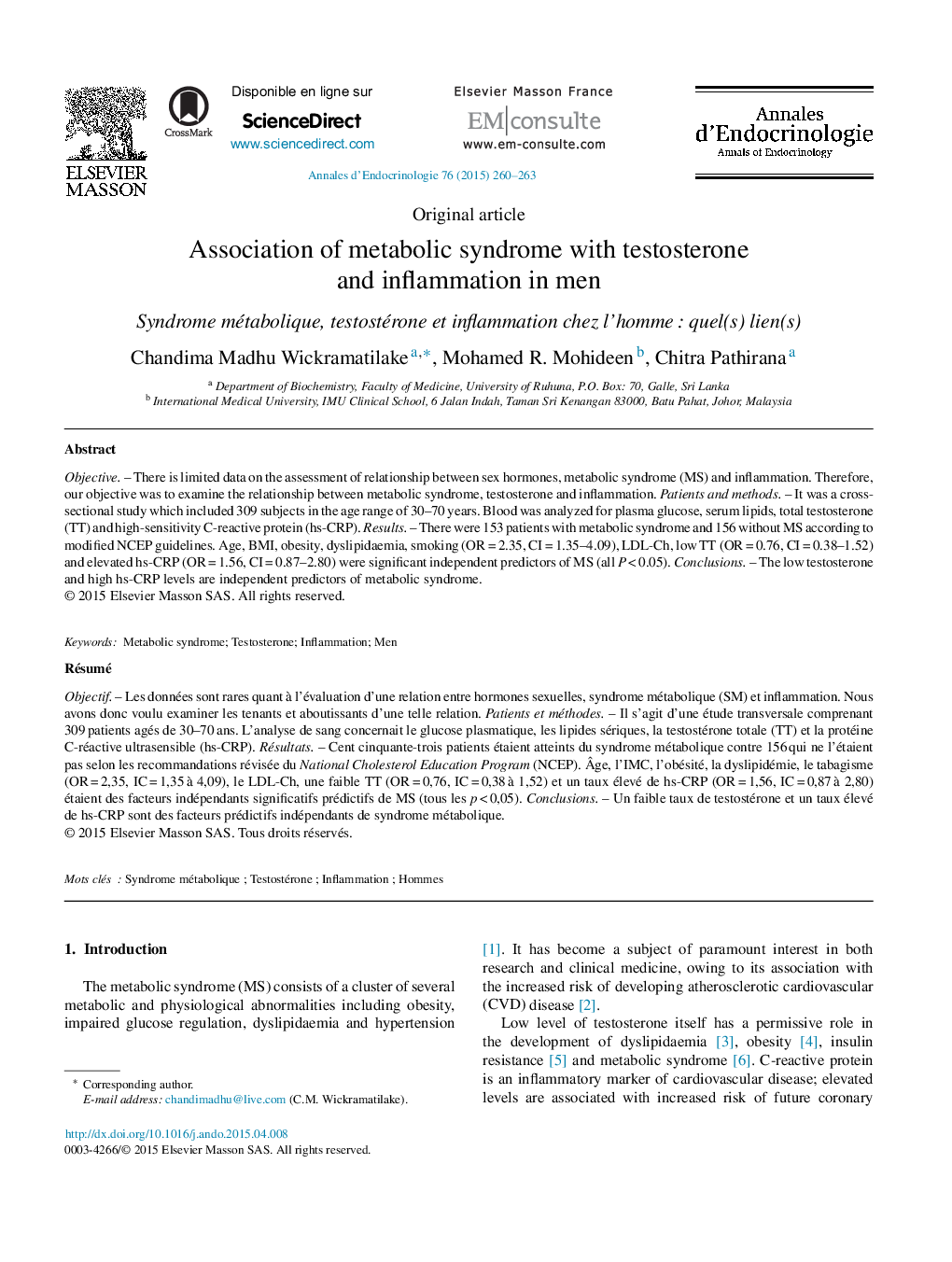| کد مقاله | کد نشریه | سال انتشار | مقاله انگلیسی | نسخه تمام متن |
|---|---|---|---|---|
| 6086038 | 1207053 | 2015 | 4 صفحه PDF | دانلود رایگان |

ObjectiveThere is limited data on the assessment of relationship between sex hormones, metabolic syndrome (MS) and inflammation. Therefore, our objective was to examine the relationship between metabolic syndrome, testosterone and inflammation.Patients and methodsIt was a cross-sectional study which included 309 subjects in the age range of 30-70Â years. Blood was analyzed for plasma glucose, serum lipids, total testosterone (TT) and high-sensitivity C-reactive protein (hs-CRP).ResultsThere were 153 patients with metabolic syndrome and 156 without MS according to modified NCEP guidelines. Age, BMI, obesity, dyslipidaemia, smoking (ORÂ =Â 2.35, CIÂ =Â 1.35-4.09), LDL-Ch, low TT (ORÂ =Â 0.76, CIÂ =Â 0.38-1.52) and elevated hs-CRP (ORÂ =Â 1.56, CIÂ =Â 0.87-2.80) were significant independent predictors of MS (all PÂ <Â 0.05).ConclusionsThe low testosterone and high hs-CRP levels are independent predictors of metabolic syndrome.
RésuméObjectifLes données sont rares quant à l'évaluation d'une relation entre hormones sexuelles, syndrome métabolique (SM) et inflammation. Nous avons donc voulu examiner les tenants et aboutissants d'une telle relation.Patients et méthodesIl s'agit d'une étude transversale comprenant 309 patients agés de 30-70 ans. L'analyse de sang concernait le glucose plasmatique, les lipides sériques, la testostérone totale (TT) et la protéine C-réactive ultrasensible (hs-CRP).RésultatsCent cinquante-trois patients étaient atteints du syndrome métabolique contre 156 qui ne l'étaient pas selon les recommandations révisée du National Cholesterol Education Program (NCEP). Ãge, l'IMC, l'obésité, la dyslipidémie, le tabagisme (OR = 2,35, IC = 1,35 à 4,09), le LDL-Ch, une faible TT (OR = 0,76, IC = 0,38 à 1,52) et un taux élevé de hs-CRP (OR = 1,56, IC = 0,87 à 2,80) étaient des facteurs indépendants significatifs prédictifs de MS (tous les p < 0,05).ConclusionsUn faible taux de testostérone et un taux élevé de hs-CRP sont des facteurs prédictifs indépendants de syndrome métabolique.
Journal: Annales d'Endocrinologie - Volume 76, Issue 3, July 2015, Pages 260-263